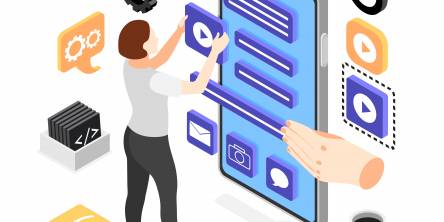Advantages and Applications of AI in Cloud Computing

The rapid evolution of technology has empowered humanity with countless avant-garde tools and solutions. Among these many wondrous technologies and solutions, two names have not only carved quite the niche for themselves but have been deemed proper rockstars in the business world Artificial Intelligence (AI) and cloud computing have ushered in a new era of technological innovation. Combining the technologies transforms how businesses process data, make decisions, and drive efficiencies. As AI's capabilities expand, its integration with cloud computing creates a synergy that enables organizations to harness the immense power of AI algorithms, data analysis, and machine learning on a scalable and accessible platform.
Now, individually, their benefits and immense potential are known well enough. But what about bringing AI to the mix in cloud computing implementation? This article delves into the dynamic fusion of AI and cloud computing, unveiling the benefits and possibilities with use cases that arise at the intersection of these two groundbreaking technologies.
What is AI in Cloud Computing?
AI in cloud computing refers to the integration of, you know, AI technologies and capabilities with cloud computing services. In this union, cloud computing offers on-demand access to computing resources such as storage, servers, networking, software apps, and databases over the internet. At the same time, AI brings in intelligent systems that can execute tasks that would otherwise need human intelligence and intervention.
AI in Cloud Computing: Benefits
- Reduced costs: AI can help to reduce costs in cloud computing in several ways, including through shared resources. Because cloud providers use shared infrastructure, resource use is optimized and costs for individual users are reduced. Furthermore, most cloud computing platforms use a 'Pay-as-you-go' model, allowing users to pay only for the resources they use. This primarily benefits AI apps that usually need significant computing power and storage.
- Automation: Once again, automation is also a multi-faceted benefit of integrating AI in cloud computing. For starters, AI can be integrated into cloud-based automation tools, automating repetitive and mundane tasks that do not necessarily need human intervention. AI can also be used to analyze data for patterns and trends, thus freeing the IT staff to focus on more strategic aspects of their job. This can also help to improve the efficiency and cost-effectiveness of cloud computing.
- Data management: Yet another compelling benefit of the union of AI and cloud computing is data management. Case in point: cloud providers already have robust security measures to safeguard data from unauthorized access and ensure compliance with data privacy regulations. AI can be used to further fortify these measures by proactively identifying and mitigating security threats.
AI in Cloud Computing: Use Cases
- Cognitive cloud computing: A relatively recent type to emerge on the scene, cognitive cloud computing is a type wherein AI is leveraged to deliver user insights and recommendations. Besides that, it can be used for tasks like fraud detection, risk management, customer service, etc.
- Chatbots: AI-driven chatbots are practically everywhere now! And it is a good thing, too; after all, these mighty tools serve to ameliorate customer service and gather data. Cloud platforms can store and analyze the data gathered by chatbots, whereas cloud services can channel said data to the right apps and services for further processing.
- Business intelligence: A rather crucial application of AI in cloud computing is for BI and analytics. In cloud computing, AI enhances data analytics by offering advanced analytics capabilities, such as predictive analytics and data visualization. This means that organizations can leverage AI in the cloud to analyze humongous datasets in real time, glean insights, and make data-driven decisions much more efficiently.
As AI technology continues to evolve in the years and cloud computing becomes more sophisticated, we can rest assured that cloud computing implementation will become even more innovative and impactful.
Similar Articles
The way we work isn't just changing, it's been completely turned on its head. Remember when the pandemic forced everyone home?
You know that sinking feeling when a project starts strong, then suddenly your client goes dark? Three weeks in, excitement morphs into eerie quiet. Revisions stack up with zero context. Every budget discussion makes your stomach tighten.
The cloud computing market is long past the point of simple migration. It is now defined by the practical application of advanced intelligence and distributed infrastructure.
In the rapidly shifting landscape of digital advertising, entrepreneurs are constantly seeking more reliable ways to connect with their customers across a fragmented web.
Agile and data driven companies have a clear competitive advantage. At least in the modern market. This shift has led to the adoption of specialized software, such as CRM and various SaaS apps.
Discover how expert book printing solutions transform manuscripts into high-quality printed books. Learn about the process, materials, customization options, eco-friendly practices, and the future of modern book printing.
Architectural 3D rendering price guide covering costs, factors, AI impact, and typical pricing for residential and commercial exterior and interior renders.
Most large organisations already know how hard enterprise application testing can be. You’ve got old and new systems talking to each other, custom code layered on vendor platforms
When it comes to working at heights, safety and efficiency are paramount. Aerial work platforms (AWPs) have revolutionized how professionals approach elevated tasks across countless industries, from construction sites to warehouse operations.









